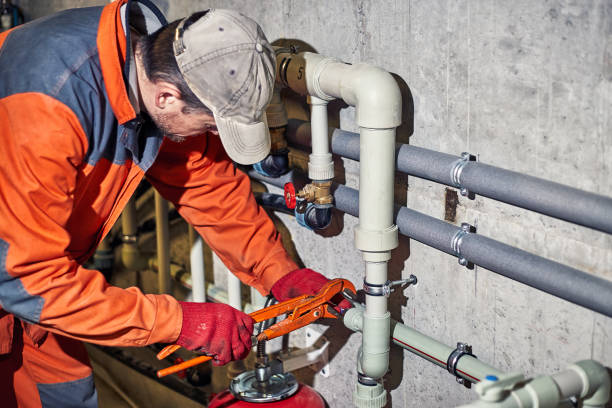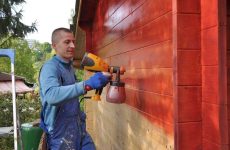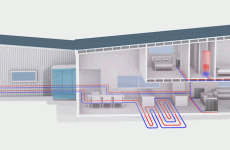Which Pipes Are In Our Buildings?
You certainly have many different pipe systems in your home. Water systems, for example, are connected to both heating and cooling systems that provide you with different temperatures of water. If you cook with natural gas or you have a propane tank outside of your home or in the crawl space underneath your home, there is a special tube that connects to the bottom of your oven so that your food can be prepared.
The American Pipeline Industry has a fascinating history. You will learn that piping should be handled with great care as gas leaks can harm your home and health. Air ducts, air tubes and steam tubes are also found in many businesses. Steam pipes have several industrial applications that make them an indispensable form of transporting noxious and unsafe gases throughout an industrial plant or factory.
In your house, you likely only have tubes connected to your water and gas. Though water is essential to life, it can be dangerous if your hoses are not sealed and maintained correctly. The resulting mould that occurs when pipes are leaking can cause extreme sickness, and most disturbingly, brain damage that can cause people who inhale mould spores to hallucinate. This is why our water piping systems must be maintained and cared for with the utmost expertise. Maintaining your piping should also be an ongoing process in the care of your home or structure, as tubes can weaken severely, causing cracks, leaks and other damage.
Why do Pipes Weaken?
Piping structures weaken because over time, they become corroded by water and other liquids that may enter them. Sometimes, this corrosion is the result of natural wear and tear that occurs over many years. Testing this damage is called stress analysis, and you should click here to learn more about that process of increasing stress to learn the durability of a tube. These tests are important because they let you know how much time you have left with your existing pipes.
Other times, people accelerate corrosion by washing or flushing inappropriate liquids down drains. For example, cooking grease should not be emptied into your kitchen sink. Cooking grease can cause extreme problems for not only your piping systems but the sewers your tubes flow into. Instead, you should store your cooking grease properly so that your tubes do not weaken at an accelerated rate.
Use Easy Processed Material
The most important thing to note is that the contents of your pipes should reflect the types of substances and materials that can be easily processed in a waste processing plant. People may think that cooking oil and grease are appropriate substances to empty into their drains and they would be sorely mistaken. Instead, it is smart to contact your local sewage authority to confirm what items can and cannot be safely flushed or disposed of in drains. You will undoubtedly find that there are many inorganic materials that can be found in several every day household items, and thus, you should check to make sure that the items you are flushing or dispensing are safe to dispose of in that manner.
Piping can also erode due to natural damage. If your house was built over 100 years ago, there is a strong likelihood that the piping will not just need to be updated but entirely replaced. If your house was built in the 1980s, your tubes may be just fine. Regardless, before you move into a new home, you should have the piping inspected by your own general contractor or trusted plumber. A house may look beautiful on the outside, but if the piping system has not been maintained over the years, the house may rest on a corroded skeleton of tubes that need to be entirely replaced.
How Do I Price My Pipe Repair Needs?
It is very important that you research pipe repair companies who have a proven track record of not only maintaining piping but also solving problems that may arise with piping systems. Your plumber should quote you a price that covers ongoing maintenance after the repair is done, in case there are any issues that arise after the job is completed. While it is critical to ensure that you are getting a fair price, it is also important to take heed of any jobs that are underpriced and increase in cost over the duration of the job.
This is why the cost of your piping system repair should also be reflected in the types of tubes being serviced. Are your pipes made of copper? If so, your plumber will need access to specific materials to ensure that your copper pipes are strong. If your tubes are made of steel, they may be easier to repair as most people have easier access to steel materials than copper. The same cast iron you use to make cornbread and fried chicken on a cast iron skillet may also be utilized in the construction of piping systems. You may also be familiar with the black iron that is used to make fire pokers, and that material is also used to make larger commercial pipes that are used to transport gases and substances that may be toxic for humans to breathe or touch.
Correct Measurement of Pipes
When pricing your pipe repair, it is also key to note that the square footage of the piping structures in your building may far exceed the square footage of the space you walk around in. Pipes are interconnected, twisting and turning all around you, unseen. As a result, pipes are measured by the mile or meter, depending on the structure. In many cases, the cost of replacing an entire piping system may far exceed the price of the building itself.
Many homeowners have purchased homes only to discover that their pipes were not appraised correctly as a part of the home, and they are then on the hook for a costly replacement. This is why you should research plumbers carefully before replacing or maintaining your pipes.




